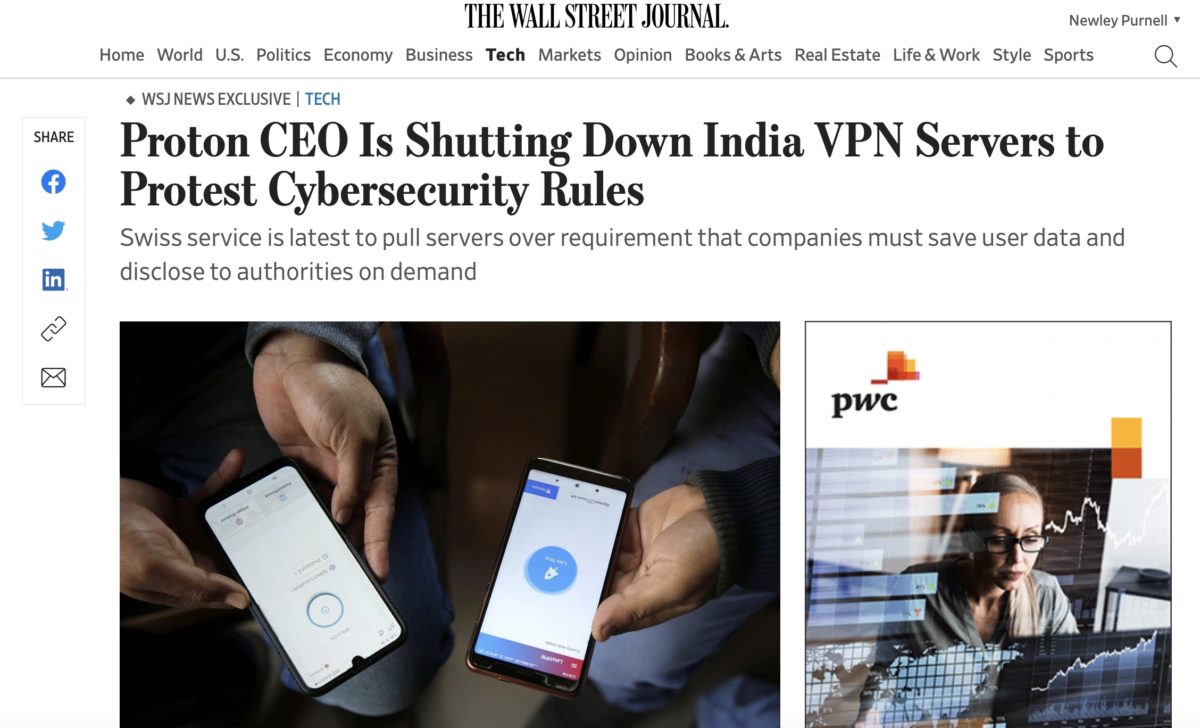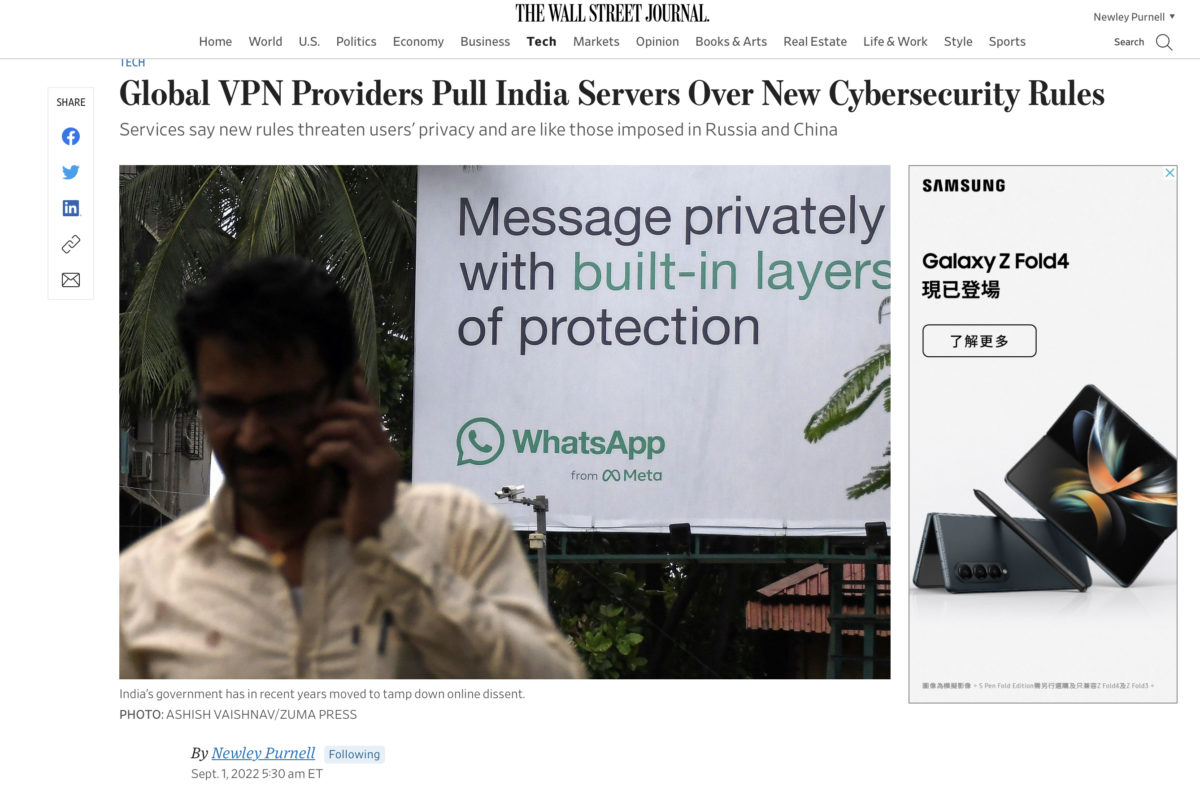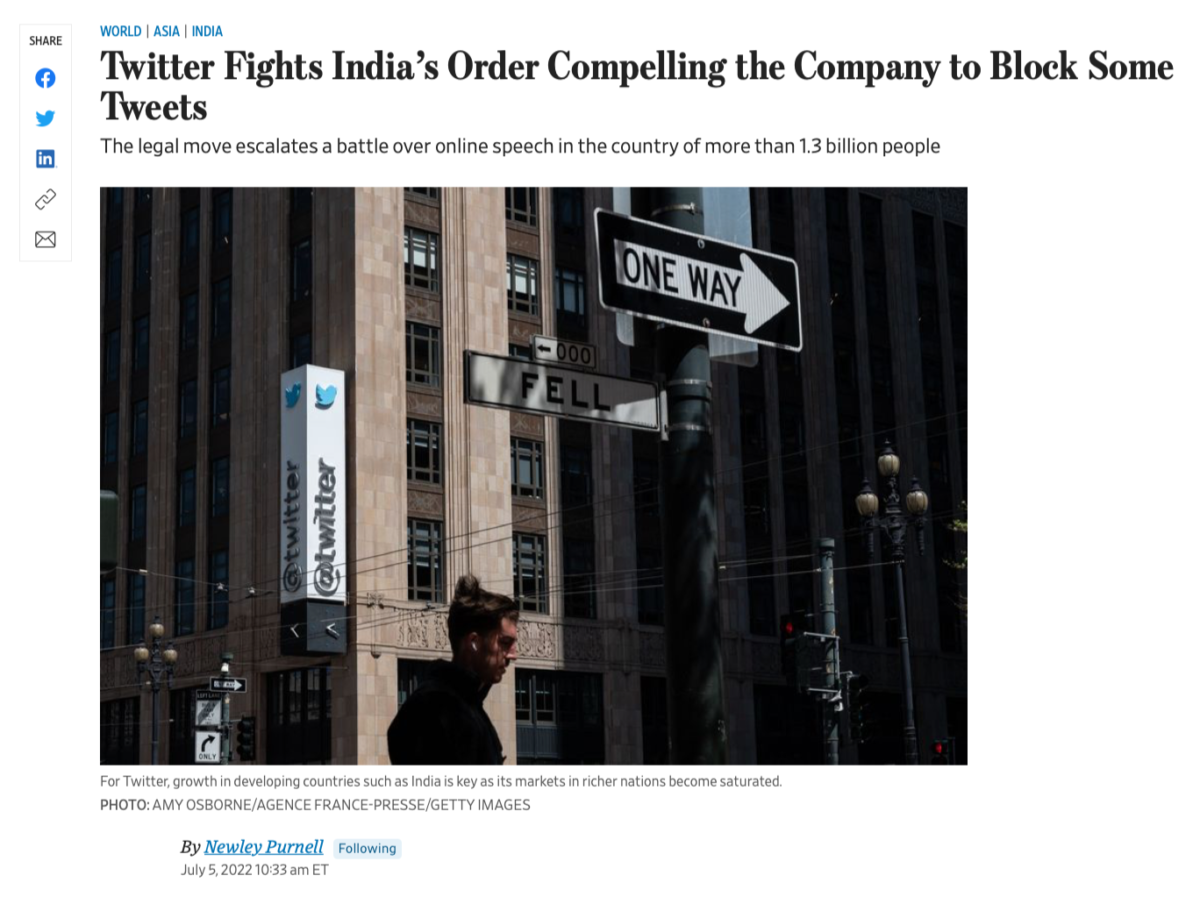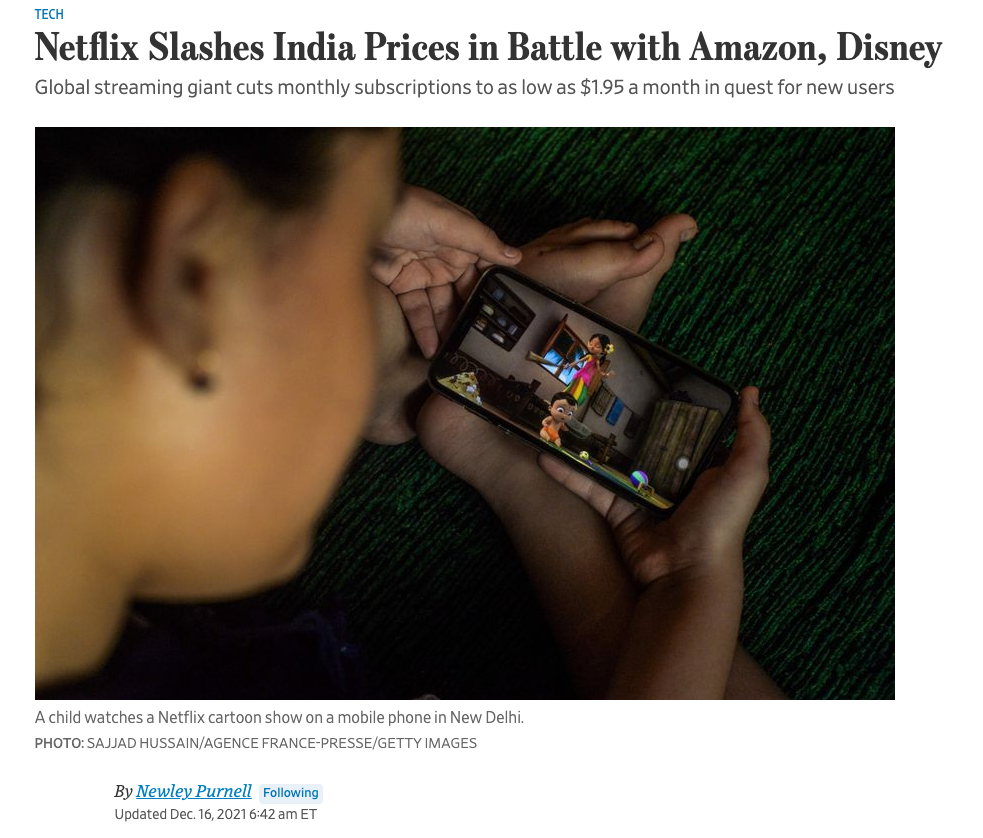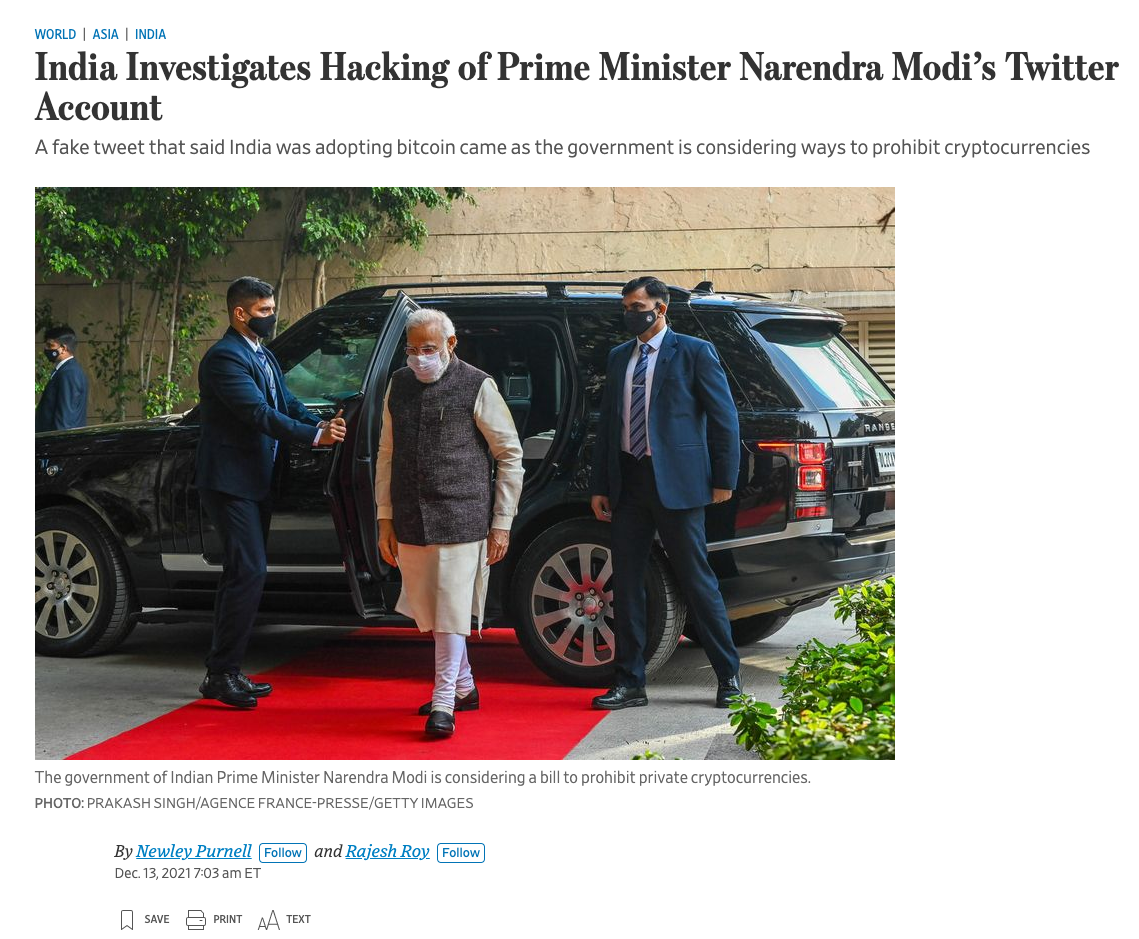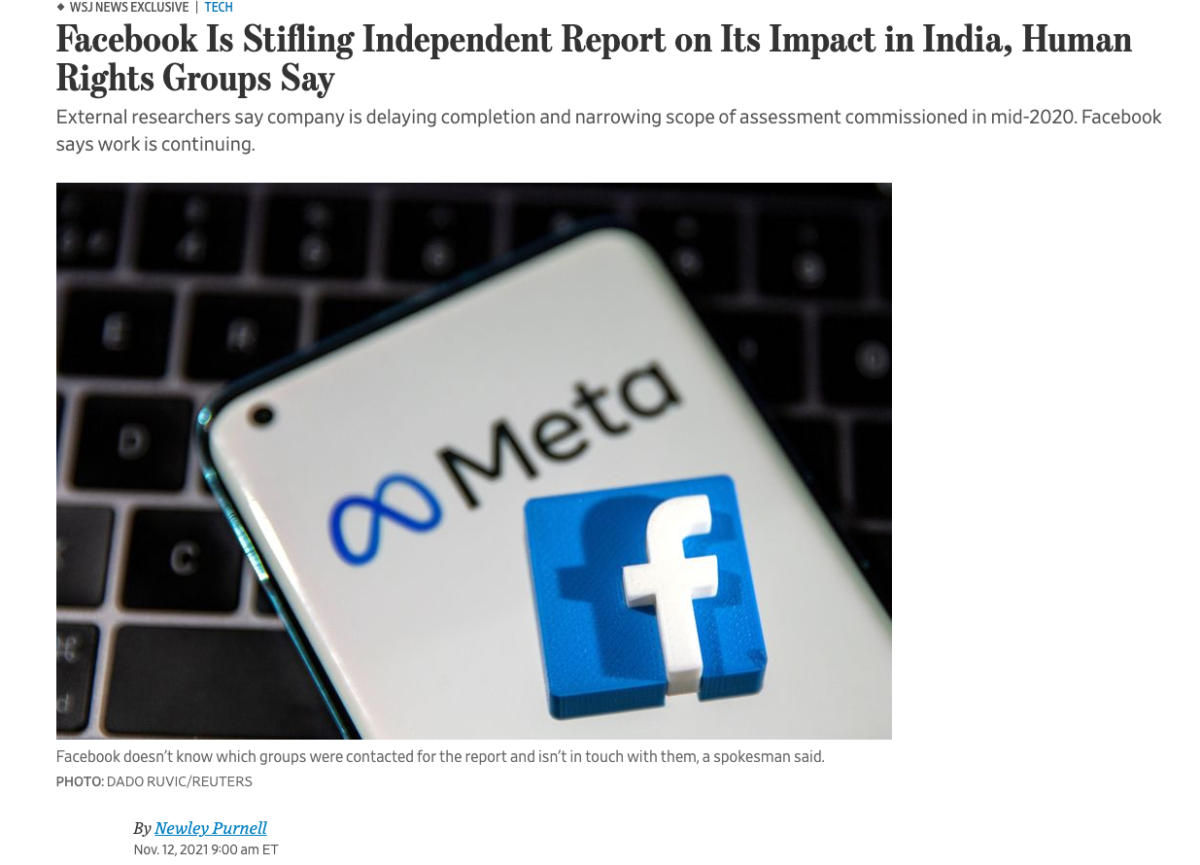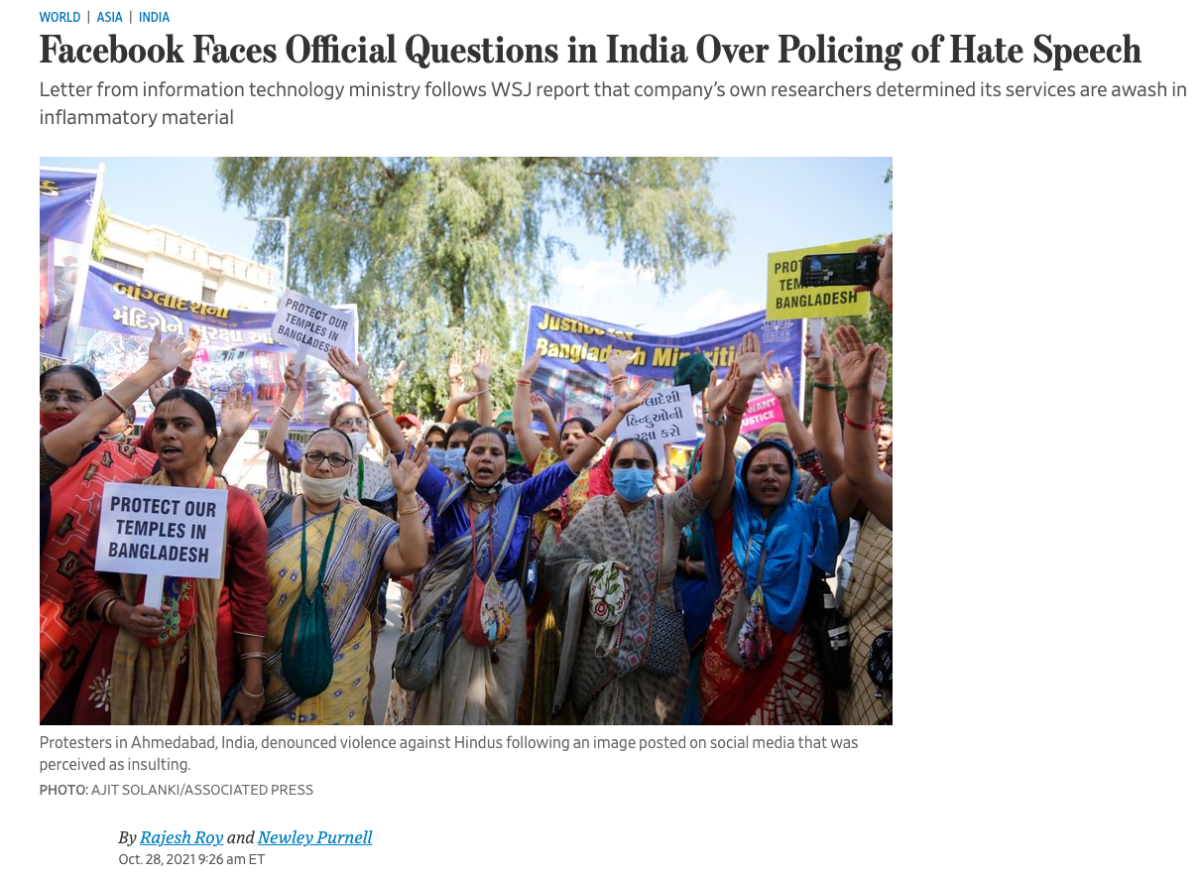That’s the headline on my newest story, an exclusive out Thursday. It begins:
The Swiss company behind well-known virtual-private-network service Proton VPN is pulling its servers from India, the latest provider to do so in response to new government rules that companies and rights groups say threaten users’ privacy.
India’s agency overseeing computer security will effective Sunday require VPN operators in the country to collect information such as customers’ names, email addresses and the IP addresses they use to connect to the internet. The companies must maintain the data for at least five years and furnish it to authorities when asked.
India’s move will undermine internet freedom and endanger activists and whistleblowers, who often use VPNs to protect their identities from the government, Proton AG Chief Executive Andy Yen said in an interview Thursday. Virtual private networks let internet users shield their location and identities online by encrypting and routing their traffic through “tunnels” between their services and customers’ computers.
“It’s going to have a chilling effect. I find it really sad that the world’s largest democracy is taking this path,” Mr. Yen said. “On paper India is supposedly taking a different path from China and Russia,” where similar rules are in place, he said.
Click through to read the rest.
A related story from a few weeks back is here.
